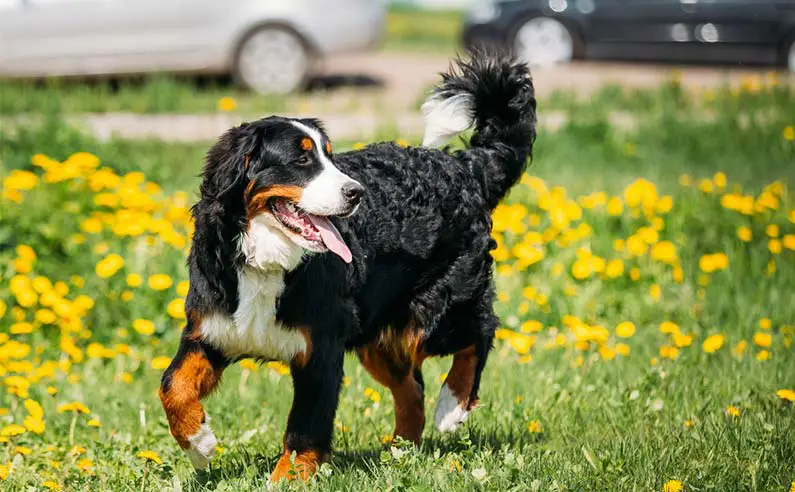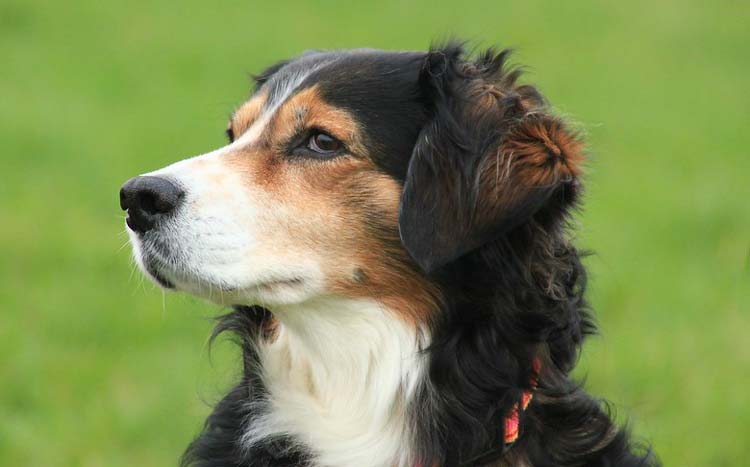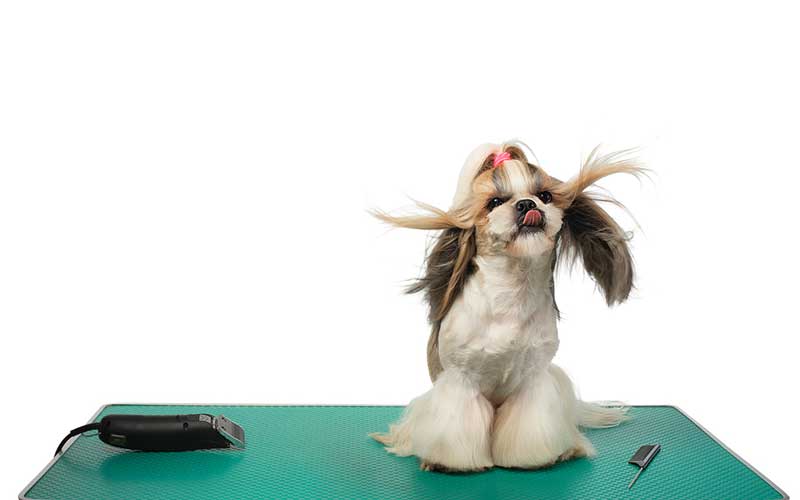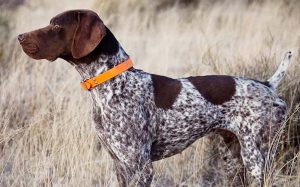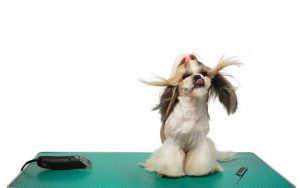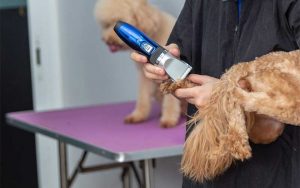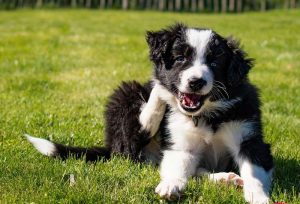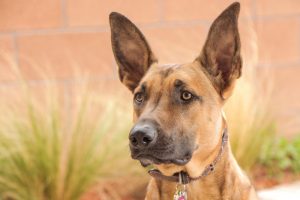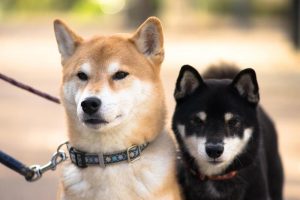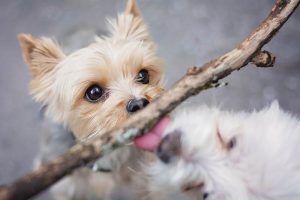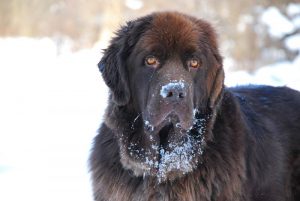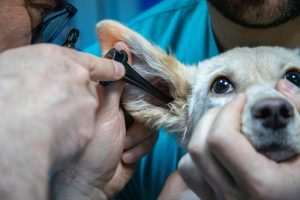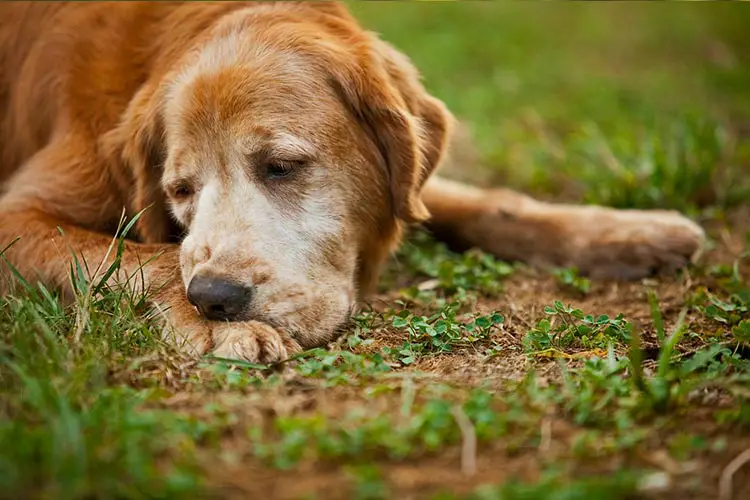
Slender or bold, elegant or athletic, hairy or neat – dog paws come in various shapes and sizes. With their unique anatomical build and purposes ranging from cushioning the legs to perspiration, paws are an incredibly designed body part.
However, just like any other body part, paws have their fair share of medical issues. Many of the paw-affecting medical issues manifest with excessive licking and chewing of the feet.
See also:
Some paw-related medical issues are severe and urgent, while others are minor and temporary. Nonetheless, they all require prompt and adequate veterinary attention.
This article will review the most common reasons for paw chewing. It will also explain the treatments and what you can do to stop this unwanted behavior.
Page Contents
Why is my dog chewing its paws?
The most straightforward answer to this question is because there is an underlying medical issue, and chewing is your dog’s way of coping with the problem.
In addition to chewing, the actions directed toward the paws can include excessive licking and rubbing against hard surfaces.
Chewing, licking, and rubbing, if excessively practiced, can become damaging and aggravate the already bad situation. For example, in more severe cases, the paws may even start bleeding and become infected.
Therefore, the key to stopping your dog from chewing its paws is identifying the underlying problem.
Most Common Causes of Paw Chewing in Dogs
As mentioned there are many reasons that can cause your dog to start chewing on its paws. Some are psychological in nature while others are physical.
Based on that, the underlying causes can be classified in two main groups:
Physical Issues
Allergies
Allergies are becoming an increasingly common issue among canines. Allergic reactions in dogs manifest with itchiness, and the itchiness triggers unusual responses on the dog’s behalf, including chewing, licking, and scratching.
There are many different types of allergic reactions in dogs; however, the ones that are most likely to trigger paw chewing are:
- Atopic dermatitis
- Food allergy dermatitis
- Flea allergy dermatitis.
Atopic dermatitis usually develops in dogs younger than three years of age. It occurs when allergens (pollen, human dander, mite droppings) settle on the dog’s skin and trigger an excessive immune response.
If your dog has atopic dermatitis is will excessively lick and chew its paws, groins, and armpits. It may also experience significant fur losses over the body.
The treatment is complex and involves corticosteroids, antihistamine drugs, special diets, and desensitizing injections.
Food allergies, as the name suggests, are triggered by certain foods. If your dog has a food allergy, eating certain foods will provoke excessive itchiness, primarily manifested on the ears, paws, and groins.
Once again, the treatment is complex and challenging and includes feeding specifically formulated hypoallergenic food formulas and conducting food elimination trials.
Flea allergy dermatitis is an interesting condition caused by flea saliva. Namely, some dogs are sensitive to this parasite’s saliva – even a few fleas can be enough to trigger an allergic response.
If your dog is scratching its body, chewing on its paws, and is infest with fleas, flea allergy dermatitis is the most probable diagnosis. Luckily, the solution is simple – applying an anti-flea product will eliminate the current fleas and repel new ones.
Foreign Body
Fiberglass fibers, foxtails, glass shards, rose thorns, cactus spines are examples of objects that can easily penetrate the skin. The area between the toes is most commonly affected.
When the foreign body breaks through the skin, it triggers an inflammatory process manifested with pain, redness, swelling, and discharge.
If your dog has a foreign body stuck in its paws, it will chew on the affected area in an attempt to remove the foreign body. It can also limp and hold the affected leg up.
The only way of solving the problem is to have the foreign body surgically removed. Based on the type of foreign body, its exact location, and the extent of the damage, the vet may decide to perform the procedure on local or general anesthesia.
More often not, these surgical procedures can be described as “needle-in-a-haystack” quests. The vet will prescribe antibiotics, anti-inflammatories, and pain relievers.
Pad corns
Just like humans, dogs can suffer from pad corns. Pad corns are rounded areas in which the top skin layer thickens excessively. The reason behind the development of pad corns is repetitive mechanical trauma. More rarely, pad corns can develop as a result of viral infections and foreign bodies.
Pad corns usually occur on the digital paw pads and are most frequently reported in Greyhounds, Lurchers, Whippets, and other members of the sighthounds group.
If your dog has pad corns, you will be able to spot a rounded and different-looking area on its pad. Additionally, your dog might be reluctant to use that leg and frequently chew on the affected paw in an attempt to eliminate the pain-causing source.
The pad corn’s unique appearance makes the diagnosis relatively straightforward.
The treatment of choice for corn pads is surgical removal. Sadly, pad corns have a reappearing tendency. In such cases, your vet might recommend injecting silicone inside the footpad to ensure additional cushioning and make the walking painless.
Pain
Any painful condition affecting the legs may result in paw chewing. However, arthritis is the most common. Over time, as they age, almost all dogs develop arthritis and arthritis-related changes.
The arthritis-related pain is usually described as low-level but constant. Some dogs learn how to live with it and ignore it, while others are more sensitive and will try to chew on their paws to redirect the pain.
If the vet determines the reason for your dog’s paw chewing is arthritis, he/she will recommend using supplements that promote joint health and, if necessary, pain medications.
Other Causes
Paw chewing can be a result of pododermatitis – inflammation of the feet’s skin and paws. Pododermatitis can be triggered by parasites (scabies and demodicosis), chemical irritants (strong cleaning products, de-icing products), hormonal imbalances, and conformation issues (only in giant breeds with splayed feet).
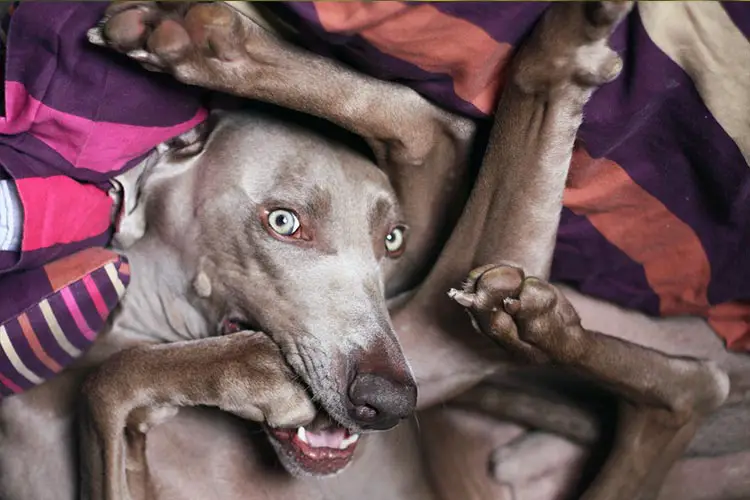
Behavioral issues
If the vet rules out the presence of physical issues, the reason behind your dog’s paw chewing is probably due to behavioral problems.
Behavioral issues are not uncommon among dogs. Behavioral problems like anxiety, boredom, and compulsiveness often result in strange behaviors, including paw chewing. There is no scientific explanation behind this phenomenon.
There is a theory that dogs with behavioral issues find comfort in repetitive actions that require their complete focus. Chewing the paws is both repetitive and attention-focusing behavior.
In such cases, it is best advised to consult with a certified canine behaviorist who will discover the reason behind your dog’s excessive chewing and help you manage the situation.
How Can I Help My Dogs?
The best way of helping your paw-chewing-prone dog is to schedule an appointment with your trusted vet and have it thoroughly examined.
Paw chewing is not a randomly occurring situation. There is always a reason behind the dog’s tendency to chew on its paws.
If the vet determined the reason is physical, he/she will make a treatment strategy. In such cases, the best thing you can do for your dog is stick to the instructions.
If there is no physical reason, the vet will refer you to a canine behaviorist. The behaviorist will tell you how to manage the situation based on your dog’s trigger.
For example, if it is due to boredom, you can keep your dog more physically active or invest in puzzle toys and interactive toys that will keep your dog busy.
If it is separation anxiety, you might be advised to hire a dog sitter or enroll your dog in a doggy daycare.
FAQs
1. Why is my dog chewing its paws so much?
Dogs can chew their paws due to either behavioral or physical issues. The group of behavioral problems includes boredom, anxiety, and compulsiveness, while the group of physical problems includes allergies, foreign bodies, pad corns, and pain.
2. What can I do if my dog chews its paws?
There is no substitute for veterinary care. If your dog is chewing on its paws, make an appointment at your trusted vet’s office. The sooner the vet addresses the issue, the sooner your dog will stop chewing.
3. Can excessive chewing cause my dog’s paws to bleed?
Yes. Excessive chewing can be damaging and may cause the paws the bleed. If your dog’s paws start to bleed, take it to the vet as soon as possible. Bleeding is a complication and may trigger more severe consequences.
4. Can I soak my dog’s paws in apple cider vinegar?
Generally speaking, when it comes to itchy paws, apple cider vinegar offers a good relief. However, its use should be discussed with your vet. Not all dogs with itchy paws benefit from this treatment – it all depends on the underlying issue and the nature of the treatment your dog is already receiving.
Conclusion
There is no one-solution-fits-all type of approach when it comes to paw chewing in dogs. Every dog is different, and in every dog, the roots of the problem are different. Because of that, each case requires an individually-tailored management strategy.
That strategy is best crafted in consultation with your trusted vet and in accordance with the dog’s underlying medical problem. Some underlying causes are one-time occurrences, while others are on-going and may require life-long therapy.
As a responsible dog parent, it is your job to make your dog as comfortable as possible during the treatment period and offer your unconditional love so your dog can overcome the problem as smoothly and quickly as possible.
If you, your vet, and your dog work together, your dog will be back to its old self – jumping on its healthy paws and constantly doing shenanigans.
